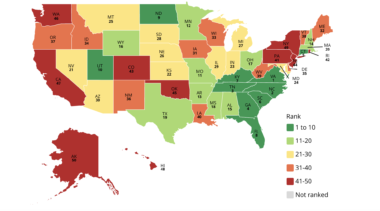-
Text message reminders can improve community supervision outcomes and reduce inefficiency
Nearly 3.7 million adults are on community supervision programs like probation and parole–that’s nearly twice the number of people incarcerated in jail or prison.
-
State tobacco and nicotine preemption and public health promotion
To maximize the benefits to public health, state legislators should preemptively reserve their state’s right to regulate nicotine products.
-
Video Game Loot Boxes: Anatomy of a Moral Panic
There is no evidence to suggest that loot box spending is excessive among adults or adolescents or that it is responsible for any widespread harm.
-
Taxes on tobacco alternatives undermine harm reduction efforts
To maximize the benefits to public health and advance the economic well-being of consumers, taxes on safer nicotine products should be kept lower than those of combustible cigarettes.
-
Unintended consequences of proposed menthol prohibition
With adult and youth smoking reaching generational lows and still falling, there is little reason to use the blunt force of prohibition to reduce smoking rates.
-
Providing returning citizens with IDs and other essential documents can facilitate the reentry process
Over 80% of prisoners will eventually be released and roughly 500,000 people are released from prison each year.
-
Strategies for improving community supervision programs
Nearly 3.7 million adults are on community supervision programs like probation and parole across the United States.
-
Occupational licensing reform can reduce barriers to employment faced by former offenders
Lawmakers should consider occupational licensing reform to reduce government-imposed barriers to employment for former offenders.
-
Refocusing U.S. welfare policy on economic opportunity
This study examines how the welfare system and banking, housing, criminal justice, and labor market regulations reduce and undermine opportunities for low-income Americans.
-
Air traffic control as a public utility
The case for changing the way air traffic control is provided in the United States.
-
Recommendations for the FAA reauthorization bill
Congress should encourage the adoption of space-based ADS-B in air traffic control, the deployment of remote air traffic control towers, and more.
-
Using DBFOM public-private partnerships benefits drivers, states and transportation contractors
Strategic use of design-build-finance-operate-maintain public-private partnerships for major transportation projects considerably expands the total money available for transportation infrastructure.
-
Modernizing psilocybin policy to improve mental health outcomes
Psychedelics have the potential to be more effective than conventional drugs now being used to treat a range of mental health disorders.
-
Modern oral nicotine and tobacco harm reduction
Oral nicotine or nicotine pouches have gained increasing popularity among smokers wishing to switch to a safer form of nicotine.
-
Fiduciary principles need to be reaffirmed and strengthened in public pension plans
"The exclusive purpose of investing pension assets must be to provide pension benefits and defray reasonable expenses—nothing else."
-
Optimal regulatory framework for state regulation of sports betting
To maximize the benefits of sports betting legalization and minimize negative externalities, state regulatory frameworks should encourage robust and competitive markets.
-
Senate Bill 88 would expose Alaska to potentially higher pension costs
Senate Bill 88 would likely cost Alaska more than $8 billion in the coming decades.

















